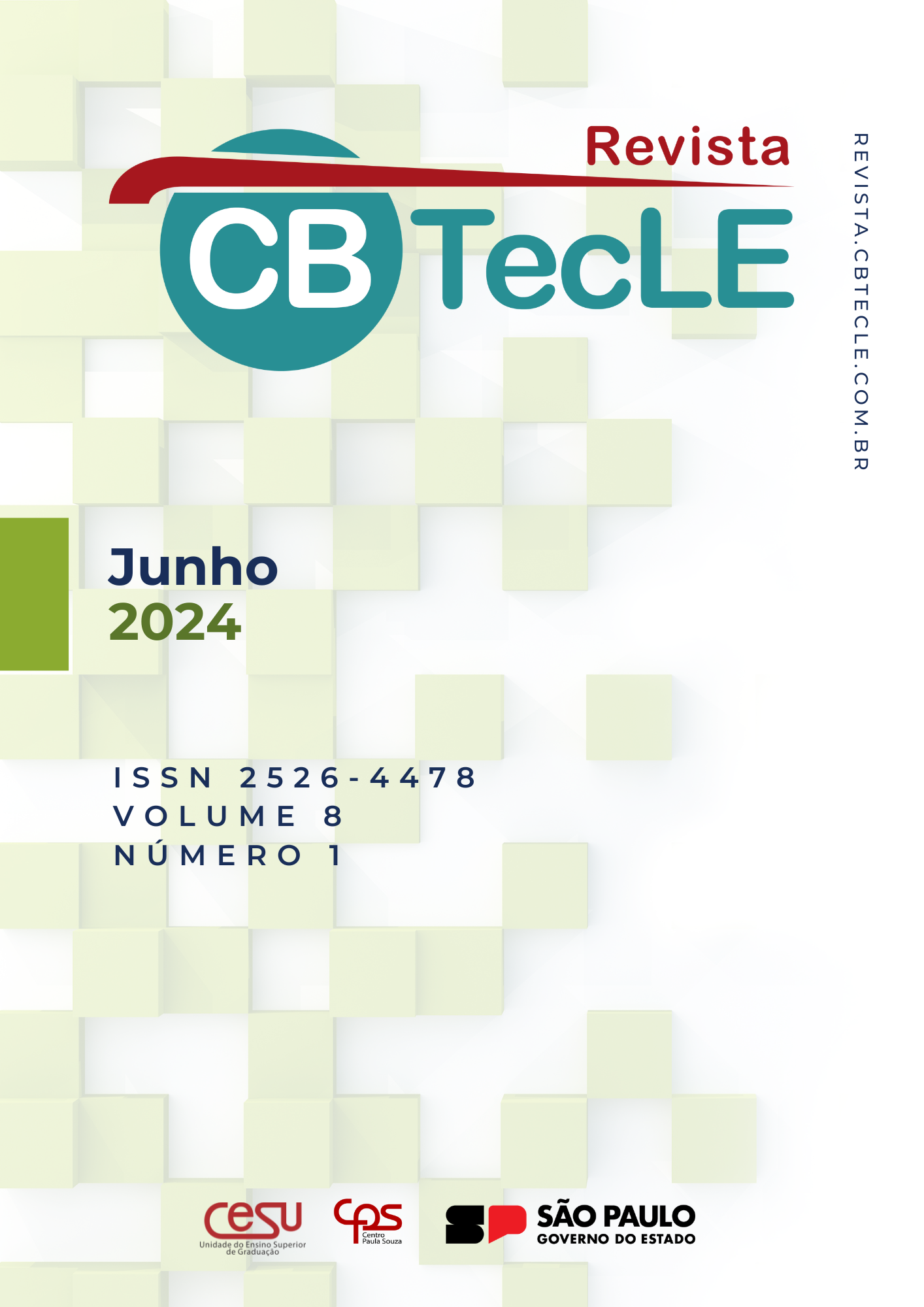português CONCEPTIONS ABOUT LANGUAGE, THE STUDENT-TEACHER RELATONSHIP, AND LEARNING IN YOUTUBE ENGLISH CLASSES
Keywords:
Language teaching methodology, Applied Linguistics, English teaching and learning, YouTubeAbstract
Abstract: The objective of this text is to present the characterization of elements of English language classes using YouTube. To achieve this objective, we analyzed classes from three English teaching channels. We adopted a qualitative research approach in the field of Applied Linguistics to observe and describe how the classes from the three channels conceive language, student-teacher roles and relationships, and learning, based on theories about English teaching-learning as foreign language and how such occurrences are characterized. The results seem to suggest that language, the student-teacher relationship, and learning are conceived in a very traditional way: language is a set of structures to be “transmitted” to the student, the student-teacher relationship is totally asymmetrical, and learning is mechanical, in the sense of the “banking education” criticized by Paulo Freire, even inserted in hypermedia contexts where multi and translingual practices are common.
References
ARAÚJO, Júlio; LEFFA, Vilson. Redes sociais e ensino de línguas: o que temos de aprender? São Paulo: Parábola, 2016.
BACICH, Lilian; TANZI NETO, Adolfo; TREVISANI, Fernando M. (Orgs.). Ensino híbrido: personalização e tecnologia na educação. Porto Alegre: Penso, 2015.
BARTON, David; LEE, Carmen. Linguagem online: textos e práticas digitais. Tradução: Milton Camargo Mota. São Paulo: Parábola Editorial, 2015.
BURGESS, Jean; GREEN, Joshua. YouTube e a revolução digital: como o maior fenômeno da cultura participativa transformou a mídia e a sociedade. São Paulo: Aleph, 2009.
CARVALHO, Gabriela G. Videoaulas no YouTube® sobre dissertação para ENEM e vestibulares: uma análise de aspectos hipertextuais e multimodais. Guarulhos: Universidade Federal de São Paulo, 2021. Dissertação (Mestrado em Letras) do Programa de Pós-Graduação em Letras, Universidade Federal de São Paulo, Guarulhos, 2021.
CAMARGO, Fausto; DAROS, Thuinie. A sala de aula digital: Estratégias pedagógicas para fomentar o aprendizado ativo, on-line e híbrido [recurso eletrônico]. Porto Alegre: Penso, 2021.
CAVALCANTI, Marilda C. Educação linguística na formação de professores de línguas. In: MOITA LOPES, Luiz P. (Org.). Linguística aplicada na modernidade recente. São Paulo: Parábola, 2011, p. 211-226
COSCARELLI, Carla Viana (Org). Tecnologias para aprender. São Paulo: Parábola, 2016.
COSCARELLI, Carla Viana. Ensino de Língua: surtos durante a pandemia. Tecnologias digitais e escola [recurso eletrônico]: reflexões no projeto aula aberta durante a pandemia, v. 1, p. 15- 21, 2020.
CRYSTAL, David. English as a global language. 2nd edition. Cambridge: Cambridge University Press, 2003.
DENZIN, Norman K.; LINCOLN, Yvonna S. (orgs.). Handbook of qualitative research. California: Sage Publications, 1994.
DÖRNYEI, Zoltán. Reserach methods in Applied Linguistics. Oxford: Oxford University Press, 2007.
FREIRE, Paulo. Pedagogia do oprimido. São Paulo: Editora Paz e Terra, 1974.
FREIRE, Paulo. Pedagogia da autonomia: saberes necessários à prática educativa. São Paulo: Editora Paz e terra, 2014.
IANNI, Octávio. Globalização e transculturação. Revista de Ciências Humanas. Florianópolis v.14 n. 20 p.139-170 1996.
JACQUEMET, Marco. Transidiomatic practices: Language and power in the age of globalization. Language & Communication, vol. 25, n. 3, p. 257-277, jul. 2005.
LARSEN-FREEMAN, Diane; ANDERSON, Marti. Techniques and principles in language teaching. 3rd edition. Oxford: Oxford University Press, 2011.
LIGHTBOWN, Patsy M.; SPADA, Nina. How languages are learned. 4th edition. Oxford: Oxford University Press, 2019.
MENEZES, Vera; SILVA, Marina Morena; GOMES, Iran Felipe. Sessenta anos de Linguística Aplicada: de onde viemos e para onde vamos. In: R.C. PEREIRA; P. ROCA. Linguística Aplicada: um caminho com diferentes acessos. São Paulo: Editora Contexto, 2009.
MOITA LOPES, Luiz Paulo da. Da aplicação de Linguística à Linguística Aplicada indisciplinar. In: R.C. PEREIRA; P. ROCA. Linguística Aplicada: um caminho com diferentes acessos. São Paulo: Editora Contexto, 2009.
MOITA LOPES, Luiz Paulo da. Como e por que teorizar o português: recurso comunicativo em sociedades porosas e em tempos híbridos de globalização cultural. In: L.P. da MOITA LOPES. (Org.). O português no século XXI: cenário geopolítico e sociolinguístico. São Paulo: Parábola, 2013, p. 101-119.
MIZUKAMI, Maria da Graça Nicoletti. Ensino: as abordagens do processo. Petrópolis: Vozes, 1986.
MORAN, José. Educação híbrida: um conceito-chave para a educação, hoje. In: BACICH, Lilian; TANZI NETO, Adolfo; TREVISANI, Fernando M. (Orgs.). Ensino híbrido: personalização e tecnologia na educação. Porto Alegre: Penso, 2015.
PAIVA, Vera Lúcia Menezes de Oliveira e. Tecnologia digital em época de pandemia. Cadernos de Linguística, v. 2, n. 1, p. 01-12. 2021.
RIBEIRO, Ana Elisa. Escrever, hoje – Palavra, imagem e tecnologias digitais na educação. São Paulo: Parábola, 2018.
RIBEIRO, Ana Elisa; VECCHIO, Pollyana de Mattos (Orgs.). Tecnologias digitais e escola: reflexões no projeto Aula Aberta durante a pandemia [recurso eletrônico], 2020.
RICHARDS, Jack C.; RODGERS, Theodore S. Approaches and methods in language teaching: a description and analysis. Cambridge: Cambridge Univ Press, 1986.
ROJO, Roxane. (Re)pensar os multiletramentos na pandemia. In: RIBEIRO, A.E.; VECCHIO, P.M. (orgs.). Tecnologias digitais e escola: reflexões no projeto Aula Aberta durante a pandemia [recurso eletrônico], p. 40-43, 2020.
VERTOVEC, Steven. Super-diversity and its implications. Ethnic and Racial Studies, vol. 30, n. 6, p. 1024-1054, 2010. Disponível em: <http://dx.doi.org/10.1080/01419870701599465>. Acesso em: 01/03/2023.



